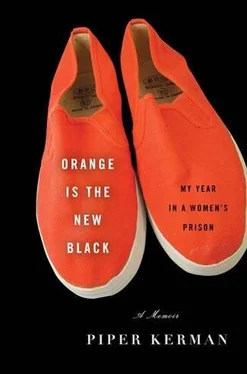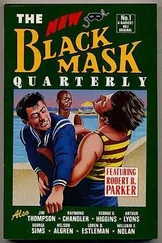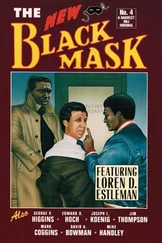“Is there something wrong with you, Kerman?” shouted the CO. “It’s true what they say about blondes, huh?”
I looked past him, into the glassed-in commissary, and spotted Lionnel. She didn’t meet my eye. I just smiled to myself as I signed my receipt and handed it back to him. It was funny how things worked around here, how other prisoners could make things happen. I wasn’t really sure what I had done right, but did it matter?
That week the entire population of the Camp was summoned into the main hallway for an impromptu meeting with the staff-a bunch of white men looking too bored to smirk. We were told:
1. Your sanitation is wanting! We will hold more inspections!
2. No smoking under the unit manager’s window! You have been warned!
3. No sex in the Camp! No exceptions! Zero tolerance! This means you!!
We were collectively unimpressed. All of us prisoners knew that Finn, the senior counselor, was way too lazy to bother inspecting the Dorms beyond the bare minimum and didn’t care enough to enforce most rules. The only thing Finn did appear to care about was hierarchy (as demonstrated to us by the nameplate fiasco). And the administrative unit manager didn’t give a rat’s ass about anything having to do with the Camp.
True to the staff’s charges against us, though, there had been quite an uptick in “sexin’” among the ladies since Butorsky’s departure, which led to some comical matchups. Big Mama was a cheerful leviathan who lived in A Dorm-quick with a play on words, generally benevolent, and prodigious in girth. She was slim on modesty, however, as was proven by her shameless sexin’ with a series of much younger, much skinnier girls in her open cubicle. I liked Big Mama and was fascinated by her romantic success. How did she do it? What were her tricks? Were they the same as those employed by fat middle-aged men to get young nubile girls to sleep with them? The girls didn’t then turn around and disrespect her, so was it curiosity on their part? I was curious, but I wasn’t quite brave enough to ask.
There was a constant dance between the prisoners and the staff around the rules. With a new rotation of officers on detail in the Camp, the dance would start anew. I was washed in relief to be rid of Gay Pornstar; it was amazing how much more bearable it was around the Camp with him gone.
In Pornstar’s place we now had Mr. Maple, who seemed to be his predecessor’s exact opposite. Mr. Maple was young, recently out of the military after service in Afghanistan, and exaggeratedly courteous and friendly. He was instantly popular with the women of the Camp. I still considered all COs the enemy on principle, but I was beginning to understand a bit better why a prisoner might look at them with anything other than a baleful eye. Regardless of “gay for the stay,” the vast majority of female prisoners are heterosexual, and they miss male companionship, male perspective, and male attention. A fortunate minority have a husband or a boyfriend who visits regularly, but most are not so lucky. The only men they come in contact with are prison guards, and if the CO is a half-decent human being, he will find himself the object of crushes. If he is a cocky bastard, even more so.
It is hard to conceive of any relationship between two adults in America being less equal than that of prisoner and prison guard. The formal relationship, enforced by the institution, is that one person’s word means everything and the other’s means almost nothing; one person can command the other to do just about anything, and refusal can result in total physical restraint. That fact is like a slap in the face. Even in relation to the people who are anointed with power in the outside world-cops, elected officials, soldiers-we have rights within our interactions. We have a right to speak to power, though we may not exercise it. But when you step behind the walls of a prison as an inmate, you lose that right. It evaporates, and it’s terrifying. And pretty unsurprising when the extreme inequality of the daily relationship between prisoners and their jailers leads very naturally into abuses of many flavors, from small humiliations to hideous crimes. Every year guards at Danbury and other women’s prisons around the country are caught sexually abusing prisoners. Several years after I came home, one of Danbury ’s lieutenants, a seventeen-year corrections veteran, was one of them. He was prosecuted and spent one month in jail.
When Mr. Maple was on duty in the evening, he constantly patrolled the Dorms. There was something unnerving to me about the male COs seeing me in nothing but my muu-muu, billowing though it was. It was more unnerving still when I would look up from changing after the gym, in shorts and a sports bra, to see the eyes of a prison guard. It wasn’t so much the idea of them seeing my body, although the thought made me recoil. It was more the idea that my intimate moments-changing clothes, lying in bed, reading, crying-were all in fact public, available for observation by these strange men.
On one of his early days on duty, Maple was running through mail call. “ Platte! Platte! Rivera! Montgomery! Platte! Esposito! Piper!”
I stepped up and he handed me my mail, and I turned back to the crowd to rejoin it. Some of the women were tittering and whispering. I stood next to Annette and looked at her quizzically.
“He called you Piper!” Other prisoners were looking at me with curiosity. It wasn’t done. I felt embarrassed and showed it by flushing deeply, which provoked more tittering.
“He just doesn’t know. He thinks it’s my last name,” I explained defensively. The next day at mail call, he did it again. “That’s her first name,” some wiseass said pointedly, as I blushed again.
“It is?” he asked. “That’s unusual.”
Still, he kept calling me Piper.
CHAPTER 9. Mothers and Daughters

Mother’s Day was off the chain at the Camp. From the moment we awoke, every woman wished another “Happy Mother’s Day”… repeatedly. I quickly gave up explaining that I had no children and just said, “Happy Mother’s Day to you!” About eighty percent of the women in U.S. prisons have children, so odds were I was right.
A lot of women had crocheted long-stem red roses for their “prison mamas” or friends. Some women organized themselves into somewhat formalized “family” relationships with other prisoners, especially mother-daughter pairs. There were a lot of little clans at Danbury. The younger women relied on their “moms” for advice, attention, food, commissary loans, affection, guidance, even discipline. If one of the young ones was misbehaving, she might get directed by another irritated prisoner, “Go talk to your mama and work your shit out!” Or if the kid was really out of control with her mouth or her radio or whatever, the mama might get the request, “You need to talk to your daughter, ’cause if she don’t get some act-right, I’ma knock her out!”
My de facto prison “family” revolved around Pop. It exemplified the complex ways that family trees grow behind bars, like topiaries trained into very odd shapes. My immediate “sibling” was Toni, the new town driver who had replaced Nina as Pop’s bunkie. By automatic extension Rosemarie, Toni’s best buddy, was another sibling-I thought of them as the Italian Twins. But Pop had many other “children,” including Big Boo Clemmons, the even bigger Angelina Lewis, and Yvonne who worked with Pop in the kitchen. I took a particular liking to Yvonne; we called each other “the sister I never wanted.” All of Pop’s black “daughters” called her Mama. All of the white ones called her Pop. She didn’t have any Spanish daughters, though she did have Spanish pals from her own peer group.
Читать дальше













